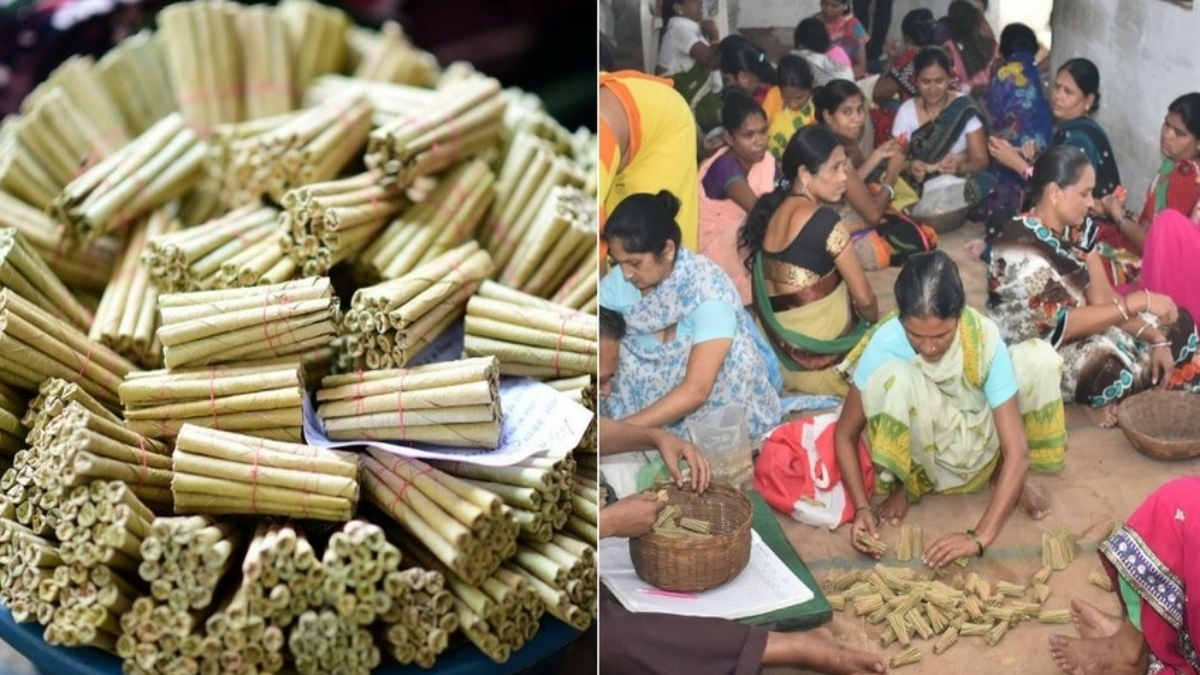A clash of interests between various ministries is not new, especially when both represent different points of view. We have seen many tussles between the Ministry of Environment versus the Ministries of Coal, Mining or Steel for one, such as the battle between POSCO and the Environment Ministry during the UPA. There have been many face-offs when forests are felled for development projects; and over the last two years we have again seen a clash of interests when the Prime Minister had to take a call between health versus the economy during lockdown.
The proposed amendments to the Cigarettes and Other Tobacco Products Act (COPTA) have put the government in a similar quandary. Prompted by health lobbies, the proposed amendment— Section 10 A (3) to the COTPA—makes it mandatory to obtain licences, permissions and registrations for manufacturing, selling and distributing any tobacco product. However, beedi manufacturers point out that this insertion, if implemented, will be an extremely harsh measure for small vendors who do not have the competency or financial means to obtain such a licence. Moreover, tobacco products are usually sold by the panwalas and small hawkers who sell their wares on pavements and will not be granted such licences. This will impact the sale of beedis and in turn the manufacturing industry.
The over hundred years old industry employs workers mostly from the unorganized sector consisting mainly of home based women workers. If the health lobbies have their way and stringent rules are imposed on the tobacco industry then the immediate fallout would be in the Ministry of Labour’s in-tray as millions of women beedi rollers would be the first to be hit since beedi forms a large chunk of India’s tobacco products.
In fact, on 14 December, Bhupender Yadav, the Union Cabinet Minister for Labour, is slated to release a report titled—A Study in the Status of Alternate Employment Schemes for Women Beedi Rollers. The study is done by Vibha Vasuki, a Human Rights Lawyer and Dr Siva Prasad Rambhatla, Senior Professor of Social Anthropology. The study looks at the plight of the women beedi rollers who make anything from Rs 200 to 250 a day by rolling 1,000 beedis from the comforts of their own home. If the new rules are implemented then they would lose this source of livelihood and look for alternate employment. As India is a signatory to the WHO Framework Convention on Tobacco Control (FCTC), the Government is obligated to promote and provide suitable alternative livelihoods for tobacco workers, including the beedi rollers, However, the reality on the ground is very different. In 2000, the International Labour Organisation’s pilot action project was launched to prepare 4,500 beedi women in the pilot areas of Mangalore, Gudiyattam, Vellore and Sagar for alternate employment but by 2003 only 30% (that too from Veloor and Mangalore) had taken to alternative jobs. This has led the beedi industry to pose an important question—would it not make more sense for the government to first find employment for the existing unemployed, before putting those earning an income, out of work?
According to the said report, “the over hundred-year-old cottage industry employs workers in mostly the unorganized sector consisting mainly of home-based women workers from poor households. 96% of the total beedi workers are home-based, while only 4% work in factories. A majority (84%) of home-based workers are women while only 16% are men”. The flexibility of hours allows the women to take up beedi rolling as a supplementary, or in some cases, main income. And 80% of these live in rural areas.
One option for India is to look at the example of Cuba which supports the cigar industry making it into a revenue earner both in terms of sale and tourism. The Cubans take their cigar culture as seriously as the wine culture of Napa valley. Next to China, India and Brazil rank among the top tobacco producing countries in the world; beedi is an exclusively Made in India product, it is wholly grown in India, rolled in India and sold in India. The pro industry argument is simple: Why cannot this be exported outside India and emerge as a revenue earner, not unlike the Cuban cigar?
The study has an essay by Ashwani Mahajan, National Convenor, Swadeshi Jagran Manch, who points out that prior to GST, “the central government was levying only a nominal tax on beedis, despite it being a smoking item. The reason for this was that beedi production has been a major source of employment in the country in the organised sector. A very small amount of central excise duty was levied on beedis by the Central Government; and even sales tax was also not levied by many state governments keeping the interests of beedi workers in mind”. But now, the high 28% GST has hit the industry hard; and the proposed COPTA amendments could be the death blow.
Apart from case studies of women beedi rollers, the industry’s best argument lies in quoting former Prime Minister Atal Bihari Vajpayee who stated at the WHO in 2000 that “it would be unrealistic to view tobacco purely as health problem and ignore the economic and social fall-outs of tobacco control….for tobacco control law to be successfully implemented, it must be accompanied by alternative modes of incomes for those dependent on tobacco.”













